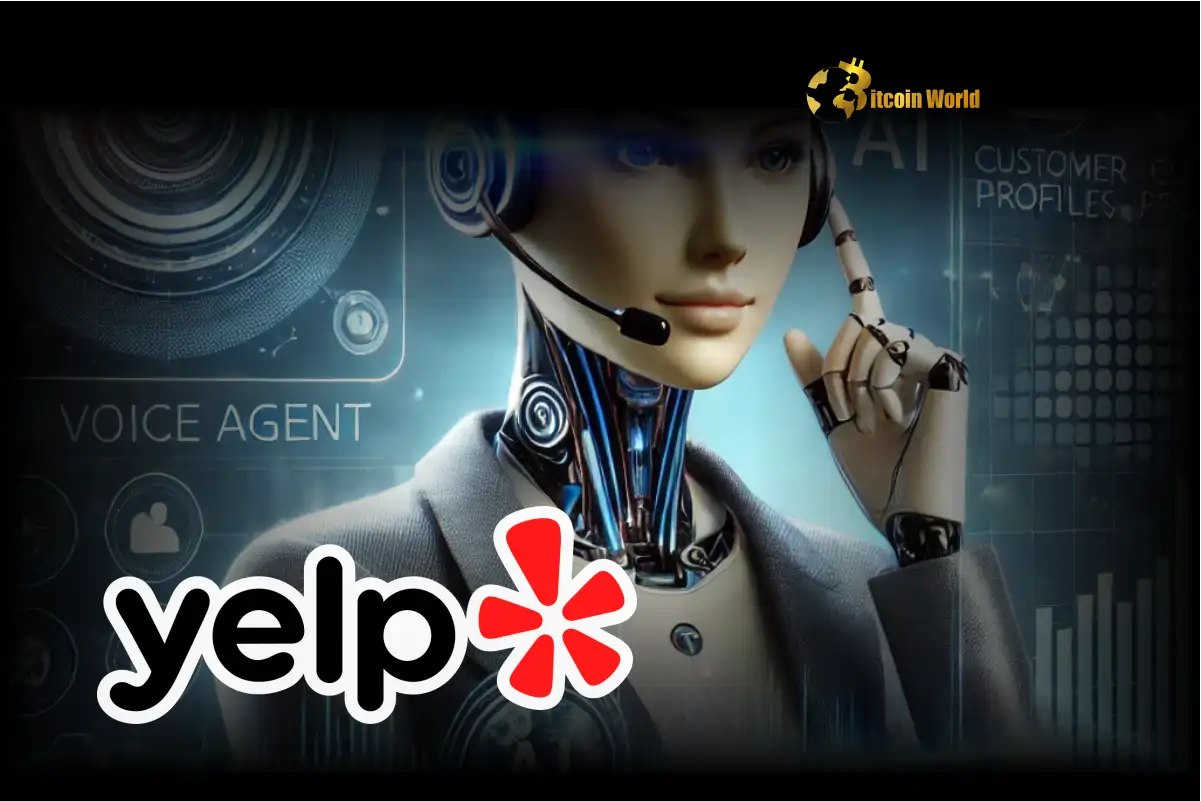AI Voice Agents Revolutionize Yelp Business Calls
0
0

In the rapidly evolving landscape of artificial intelligence, advancements are continually reshaping industries far beyond the realm of finance and digital assets that often capture the attention of the crypto community. One such development making waves in the service sector comes from Yelp, which is leveraging cutting-edge AI voice agents to transform how local businesses interact with their customers over the phone. This move highlights the broader integration of AI into everyday operations, a trend worth noting as technology continues its relentless march forward.
How are Yelp AI Voice Agents Helping Businesses?
Yelp recently announced its deployment of AI-powered “voice agents” designed specifically for restaurants and service providers. The core idea is to automate and streamline common phone interactions, freeing up valuable time for busy staff. These agents can handle incoming calls, answer frequently asked questions about hours, location, or services, and even perform specific tasks like adding a customer to a restaurant’s waitlist.
A key benefit highlighted by Yelp is the ease of setup. Businesses don’t need complex API integrations or technical expertise. The agents can pull information directly from the business’s existing Yelp profile data, including customized greetings, pronunciation guides, and call forwarding rules. This low barrier to entry makes the technology accessible to a wide range of local businesses.
Exploring the Technology Behind Yelp AI
Powering this initiative, Yelp is utilizing OpenAI’s Realtime API for end-to-end call handling. This integration allows the Yelp AI agents to not just follow a script but to engage in more dynamic, conversational interactions. Augmented by Yelp’s extensive knowledge graph, the agents can understand context, ask follow-up questions, and provide relevant information drawn from the platform’s rich dataset.
Yelp is committed to refining this technology, constantly evaluating different AI models to optimize performance. Key metrics for evaluation include latency (how quickly the agent responds), speech recognition accuracy (how well it understands the caller), and the overall customer experience. The goal is to provide interactions that are as natural and helpful as possible.
Boosting Business Efficiency with Business AI
For many small and medium-sized businesses, especially restaurants and service providers, missed calls represent missed opportunities. Staff are often busy serving customers, working on-site, or managing operations, making it difficult to answer every incoming call promptly. This is where business AI solutions like Yelp’s voice agents prove invaluable.
According to Yelp Chief Product Officer Craig Saldanha, the motivation was to build a product that could help convert leads that might otherwise be lost. By ensuring every call is answered and basic queries are handled automatically, businesses can capture potential customers they might have missed during peak hours or when short-staffed. Beyond answering calls, the agents also offer features like automatic spam filtering and detailed call analytics, providing businesses with insights into their customer interactions.
The Future of Voice Technology and Lead Conversion
Looking ahead, Saldanha anticipates that core voice technology itself will become increasingly commoditized. The real differentiator, he believes, will lie in the quality and depth of the underlying data that fuels the AI, and how effectively the AI can process and respond to complex customer queries. Yelp’s extensive data on local businesses and consumer interactions positions them favorably in this regard.
The ability of these AI agents to connect with a restaurant’s management software to send reservation details post-call is a prime example of how integrated AI can directly contribute to lead conversion and operational efficiency. By automating tasks that previously required manual intervention, businesses can focus on providing excellent service while the AI handles the initial customer contact and information gathering.
Of course, for more complex requests or situations that require nuanced human understanding, the system is designed to seamlessly hand off the conversation to a human agent. After each call, businesses receive a summary, transcript, and recording, allowing them to review interactions and further train the system or address issues.
Conclusion
Yelp’s introduction of AI voice agents represents a significant step in bringing sophisticated automation to the local service industry. By leveraging AI to handle routine calls and tasks, businesses can improve efficiency, reduce missed opportunities, and enhance customer service. This development underscores the pervasive influence of AI across various sectors, demonstrating its potential to solve real-world business challenges and highlighting the ongoing evolution of how technology facilitates interactions between consumers and service providers.
To learn more about the latest AI market trends, explore our article on key developments shaping AI features.
0
0
 Manage all your crypto, NFT and DeFi from one place
Manage all your crypto, NFT and DeFi from one placeSecurely connect the portfolio you’re using to start.





